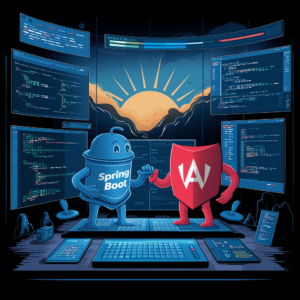Choosing a programming language is a critical decision for developers and businesses. Each programming language has its strengths and weaknesses, making it suitable for specific use cases. Java, one of the most popular programming languages, often competes with a variety of others. In this article, we’ll compare Java to other programming languages, highlighting the key factors that influence the choice of a programming language for various applications.
The Java Language
Java, first released in 1995, is known for its platform independence and strong community support. Key features of Java include:
- Write Once, Run Anywhere (WORA): Java’s “write once, run anywhere” principle allows code to be executed on any platform that supports Java without modification. This is achieved through the Java Virtual Machine (JVM), which translates Java bytecode into native machine code.
- Strongly Typed: Java is a statically-typed language, which means that variable types are checked at compile-time. This reduces the chances of runtime errors.
- Large Ecosystem: Java has a vast ecosystem, including libraries, frameworks, and tools for web development, mobile app development (Android), enterprise applications, and more.
- Community Support: Java has a strong developer community, which ensures the availability of resources, tutorials, and assistance.
Comparison with Other Languages
Let’s compare Java to a few other popular programming languages:
1. Python
Strengths of Python:
- Simplicity: Python’s syntax is clear and easy to read, making it a great choice for beginners.
- Rapid Development: Python is well-suited for rapid application development.
- Versatility: Python can be used for web development, data analysis, machine learning, and more.
Java vs. Python: Java is typically faster than Python, making it a better choice for performance-critical applications. Python is easier to learn and more concise.
2. JavaScript
Strengths of JavaScript:
- Browser Compatibility: JavaScript is the language of the web and is supported by all major web browsers.
- Versatility: JavaScript can be used for both front-end and back-end development.
- Ecosystem: JavaScript has a vast ecosystem of libraries and frameworks like React, Angular, and Node.js.
Java vs. JavaScript: Java is a statically-typed language primarily used for server-side applications, while JavaScript is dynamically typed and is the language of the web, used for both client and server-side development.
3. C++
Strengths of C++:
- Performance: C++ is known for its high performance, making it suitable for system-level programming.
- Resource Control: C++ provides fine-grained control over memory and system resources.
- Legacy Systems: C++ is commonly used in applications like game development and operating systems.
Java vs. C++: Java offers greater portability and safety, while C++ excels in terms of performance and resource management. The choice depends on the specific project requirements.
4. Ruby
Strengths of Ruby:
- Elegance: Ruby is often described as an elegant language with a simple and readable syntax.
- Ruby on Rails: Ruby is the foundation for the Ruby on Rails web framework, known for its developer-friendliness and rapid development capabilities.
Java vs. Ruby: Java is statically typed and offers strong performance, while Ruby is dynamically typed and emphasizes developer productivity. The choice depends on project requirements and development style.
5. Go (Golang)
Strengths of Go:
- Concurrency: Go is designed for concurrent programming, making it suitable for applications that require high levels of parallelism.
- Efficiency: Go is known for its efficiency, making it a good choice for applications that need to maximize resource utilization.
- Compiled Language: Go compiles to native machine code, which can result in faster execution times.
Java vs. Go: Java has a mature ecosystem and is often used in enterprise applications. Go, on the other hand, is a more modern language designed for high-performance applications with a focus on concurrency.
6. C#
Strengths of C#:
- Windows Development: C# is commonly used for Windows application development, including desktop applications and games.
- .NET Framework: C# is the primary language for the Microsoft .NET framework, which provides a comprehensive set of libraries for various applications.
Java vs. C#: While both languages offer similar features, the choice often depends on the platform. Java is platform-independent, while C# is commonly associated with Windows development.
7. PHP
Strengths of PHP:
- Web Development: PHP is a popular language for web development, especially on the server side.
- Large Community: PHP has a large and active community, resulting in a plethora of resources and frameworks.
Java vs. PHP: Java is known for its performance and scalability, making it a strong choice for enterprise applications. PHP is often used for web development and may be a more suitable choice for smaller web projects.
Conclusion
The choice of programming language is a crucial decision, and there’s no one-size-fits-all answer. Each language has its strengths and is well-suited for specific use cases. Consider factors like performance, ease of development, community support, and ecosystem when making your decision. It’s also important to remember that many modern applications use multiple languages for different components, leveraging the unique strengths of each language to create a powerful and versatile system.
In the end, the best programming language is the one that aligns with your project’s goals and requirements. By evaluating these factors and understanding the specific needs of your application, you can make an informed decision that will set the foundation for a successful development journey.






